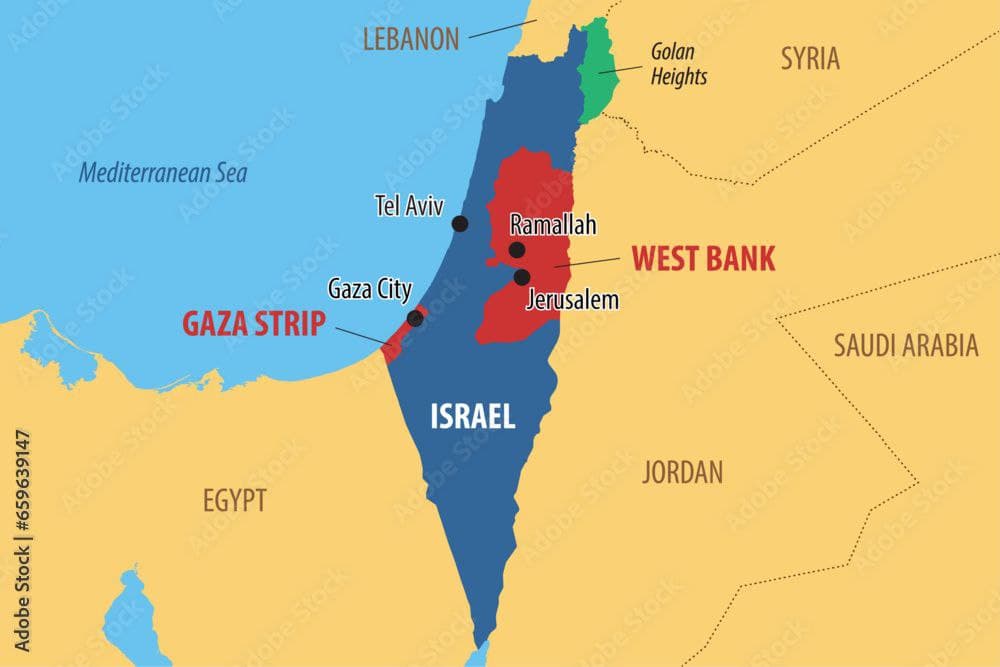Israel Moves to Implement Sovereignty Over West Bank Amid Urgent Settlement Plans
In a significant political maneuver, Israeli Defense Minister Israel Katz and Justice Minister Yariv Levin have announced a renewed commitment to establish Israeli sovereignty over Judea and Samaria, commonly known as the West Bank. This initiative comes at a pivotal moment, described by the ministers as a "window of opportunity that must not be missed." The announcement has sparked fervent debates over the implications for regional stability and peace prospects.
Background & Context
The West Bank has been a focal point of the Israeli-Palestinian conflict since the 1967 Six-Day War, with Israel capturing the territory from Jordan. Since then, the area has seen extensive Israeli settlement, which is viewed by many in the international community as illegal under international law. However, Israel disputes this interpretation, citing historical and security claims to the land. Recent years have seen a series of political developments, including the normalization of relations between Israel and several Arab nations, which some analysts argue has created a more favorable environment for unilateral actions regarding the West Bank.
The current Israeli government, led by a coalition that includes right-wing parties, has been vocal about its intention to solidify control over the West Bank. The latest statement from Katz and Levin reflects a long-standing goal of their coalition partners and represents a shift in the Israeli government"s approach to settlement and sovereignty in the region.
Key Developments
The announcement from the Israeli ministries details that maps have already been prepared and decisions made to facilitate settlement expansion in the West Bank. "We have been working for years to establish Israeli sovereignty over Judea and Samaria," Levin stated, emphasizing the urgency of the current political climate. He further asserted that the Israeli government would not miss this opportunity to assert its claims, which has been a cornerstone of their political agenda.
This move is expected to accelerate settlement construction, further entrenching Israeli presence in areas of the West Bank that are home to significant Palestinian populations. Critics of the plan argue that it undermines the possibility of a two-state solution, a framework long supported by the international community as a means to resolve the Israeli-Palestinian conflict.
Broader Impact
The implications of this announcement extend beyond Israeli borders. Internationally, the move has been met with swift condemnation from Palestinian leaders and various global entities. Palestinian Authority President Mahmoud Abbas denounced the Israeli plans as a violation of international law and an obstacle to peace. The United Nations and European Union have also expressed concerns, warning that such actions could escalate tensions in an already volatile region.
Experts suggest that this escalation could provoke a backlash, both from Palestinian factions and the broader Arab world. The potential for increased violence and unrest is a significant concern, particularly as tensions have already been heightened due to ongoing conflicts in Gaza and the West Bank. This situation mirrors similar instances in global politics where territorial claims have led to unrest, such as the recent developments in Ukraine, where territorial sovereignty remains a contentious issue.
What"s Next
In light of this announcement, the immediate future will likely see increased settlement activity in the West Bank, as the Israeli government moves to capitalize on what it perceives as a favorable political climate. Observers will be closely monitoring the responses from Palestinian leadership and the international community, particularly regarding potential diplomatic actions or sanctions against Israel.
Additionally, as tensions escalate, there could be a rise in protests both within Israel and among Palestinian communities. The situation warrants vigilance, as any violent backlash could further complicate an already fragile peace process. Analysts predict that the coming weeks will be critical in determining the trajectory of Israeli-Palestinian relations and the broader geopolitical landscape in the Middle East.



![[Video] Gunfire between Iraqi security forces and Sadr militias in Baghdad](/_next/image?url=%2Fapi%2Fimage%2Fthumbnails%2Fthumbnail-1768343508874-4redb-thumbnail.jpg&w=3840&q=75)
